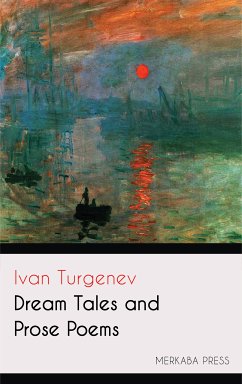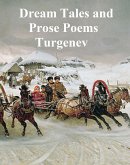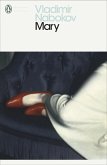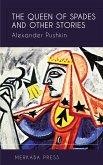Turgenev was a major 19th century Russian novelist. His novel Fathers and Sons is his best-known work. Turgenev wrote a famous obituary to his hero Gogol which caused him to be exiled for two years. During the 1850"s several Russian authors including Turgenev emigrated to Europe. Included in this collection are: Clara Militch, Phantoms, The Song of the Triumphant Love, The Dream and selected Poems in Prose. These selections are some of his final writings.
Dieser Download kann aus rechtlichen Gründen nur mit Rechnungsadresse in A, B, BG, CY, CZ, D, DK, EW, E, FIN, F, GR, H, IRL, I, LT, L, LR, M, NL, PL, P, R, S, SLO, SK ausgeliefert werden.









